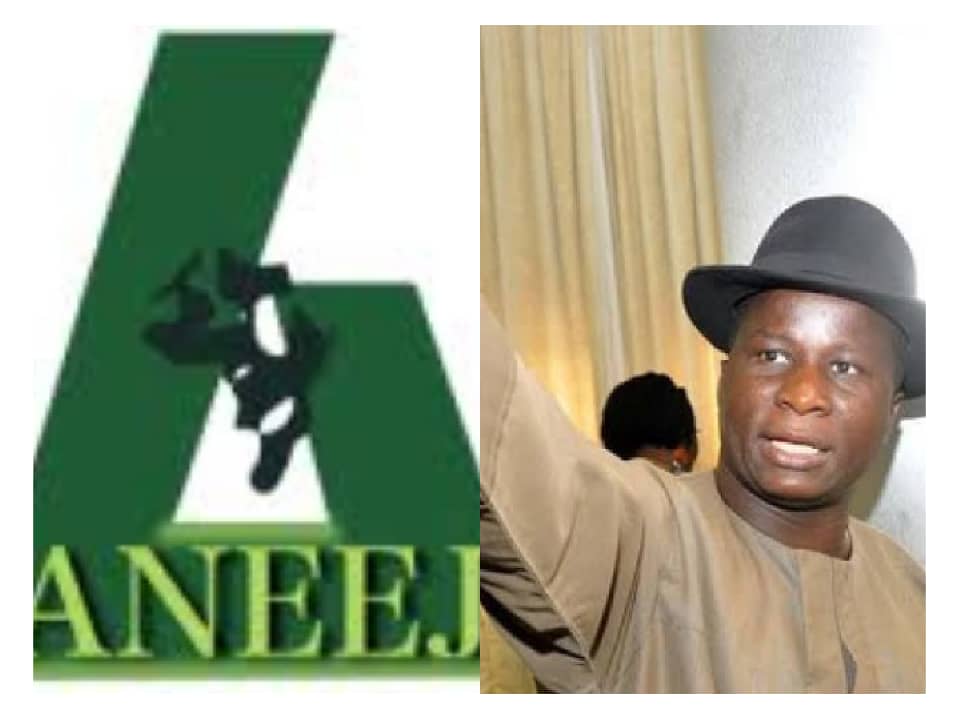The Africa Network for Environment and Economic Justice (ANEEJ), implementers of the Civil Society Advocacy to Strengthen Anti-Corruption Reforms in Nigeria (CASARN) project, has called on Nigerian youths to take a lead in the fight against corruption, especially as Nigeria grapples with the far-reaching impacts of corruption.
The Africa Network for Environment and Economic Justice (ANEEJ), has called on Nigerian youths to take a lead in the fight against corruption as the country grapples with far-reaching impacts of corruption.
Executive Director of ANEEJ and the Co-Chair of the United Nations Convention Against Corruption (UNCAC) Coalition, Rev David Ugolor stated this in his message to mark this year’s International Anti-corruption day 2024; noting that the fight against corruption can only be won through the collective effort of all stakeholders. He pointed out that the cost of corruption undermines Nigeria’s development, deepens inequality and compromises opportunities for future generations and erodes trust in public institutions.
The Africa Network for Environment and Economic Justice (ANEEJ), are the implementers of the Civil Society Advocacy to Strengthen Anti-Corruption Reforms in Nigeria (CASARN)
Harping on this year’s theme: “Uniting with Youth Against Corruption: Shaping Tomorrow’s Integrity,” Ugolor pointed out that the theme underscores the pivotal role of young people in combating corruption and building a culture of integrity, accountability, and transparency for a sustainable future.
“With over 60% of Nigeria’s population under the age of 25, empowering youth to take a stand against corruption is not just necessary but strategic for the country’s progress. Young people are at the forefront of innovation, advocacy, and activism. Their energy, creativity, and commitment to positive change are critical assets in the fight against corruption,” Ugolor stated.
He assured that ANEEJ, through the CASARN project, will prioritize engaging youth as catalysts for governance reforms, strengthening their capacity to demand accountability and lead transformative actions across the Nigerian states.
“The CASARN project will contribute greatly to the reduction of corruption in Nigeria through civil society advocacy to strengthen systems, improve service delivery and support anti-corruption reforms at national and sub-national levels. The project has facilitated dialogues between CSOs, young people and policymakers, ensuring that youth voices are represented in decision-making processes related to governance and anti-corruption reforms. As implementation progresses, youth-driven initiatives to monitor public service delivery, exposing irregularities and advocating for corrective measures will be carried out with the use of the Open-Source Intelligence (OSINT) technology.
“According to recent studies, Nigeria loses billions of dollars annually to corruption in public procurement, resource management, and governance inefficiencies. This has dire consequences on critical sectors like education, healthcare, and infrastructure. As young people inherit the consequences of corruption, their active participation in the fight against corruption and involvement in governance is essential for reversing these trends”.
The ANEEJ helmsman then urged the Nigerian youth to: “Speak Out- Refuse to normalize corruption and challenge practices that undermine integrity in their communities, Leverage Technology- use digital tools to track government actions and projects, expose corrupt practices, and demand accountability as well as Mobilize and Advocate- form networks and coalitions to amplify their voices and strengthen collective action against corruption.
“As we celebrate the contributions of young people to the anti-corruption movement, we must also commit to building an enabling environment where their ideas and actions can thrive. ANEEJ, through the CASARN project, will continue to provide platforms for youth engagement, advocate for systemic reforms, and support initiatives that strengthen Nigeria’s fight against corruption. Together, we can shape a future where corruption has no place and integrity defines our nation,” Ugolor called.
Recall, that the Civil Society Advocacy to Strengthen Anti-Corruption Reforms in Nigeria (CASARN) project is an EU-funded initiative implemented under the Rule of Law and Anti-corruption (RoLAC) program which is implemented by the International IDEA. With the aim to promote transparency, accountability, and inclusive governance in Nigeria, the project empowers citizens, particularly youth, and civil society organizations to combat corruption and advocate for systemic reforms that ensure effective utilization of public resources.
